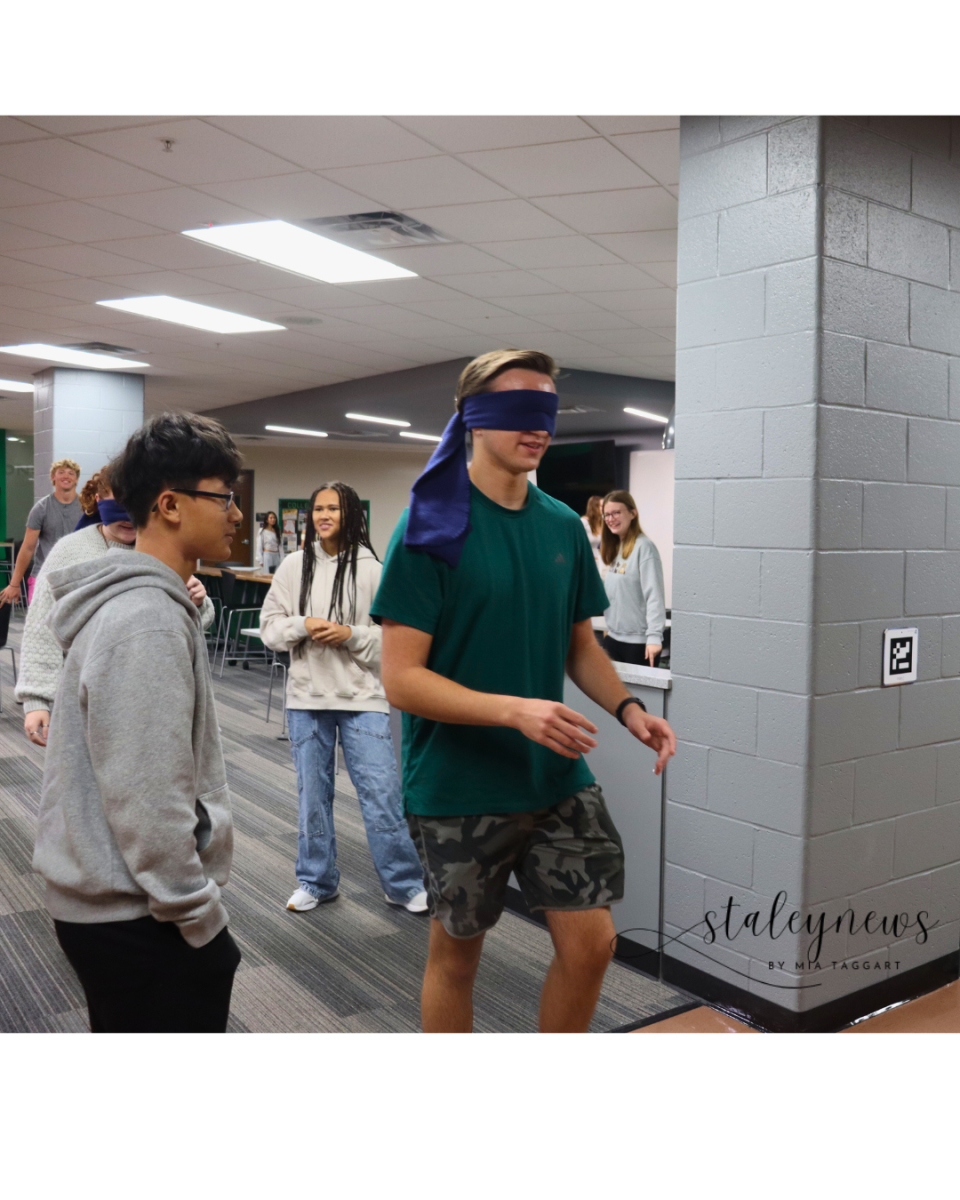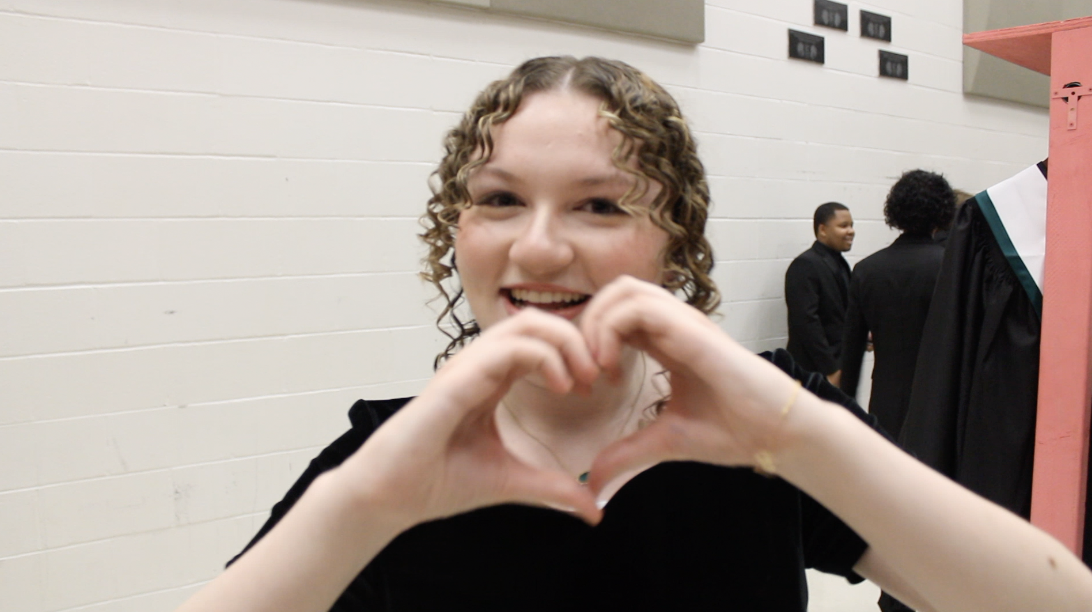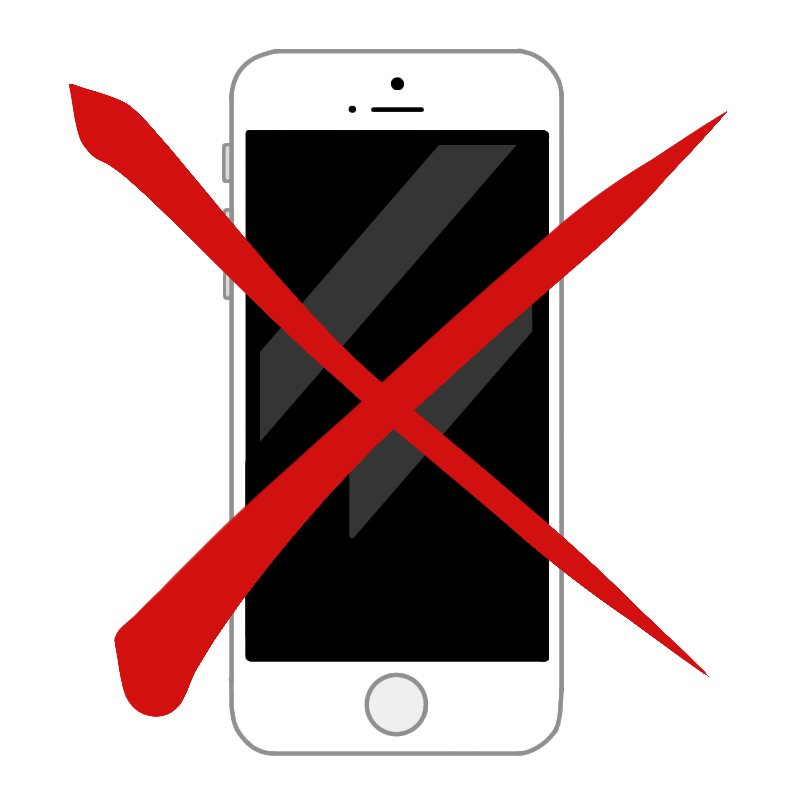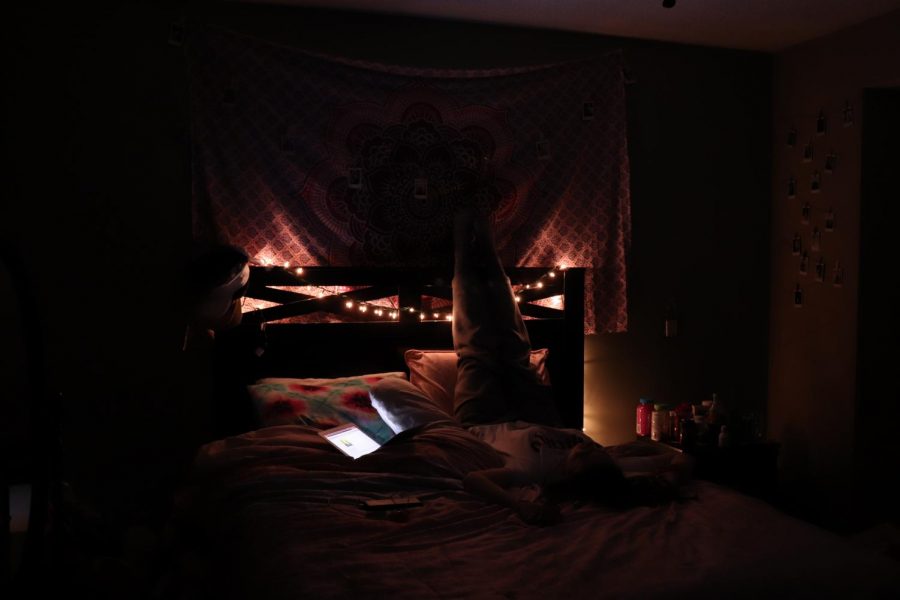What Keeps Us Up at Night
Taking a deeper look into the sleeping habits of teens
January 28, 2020
Putting sleep on the back burner until the early morning is an all too familiar scene for teenagers nowadays. Their sleep schedule is in competition with a variety of outside factors, whether it be an assignment due the next day or too many episodes of a TV show. Teens are visibly struggling to divide their time to maintain a healthy balance, and many of the consequences from this are being brought back into the school environment.
“I started getting less sleep during the transition period between middle and high school,” said junior Katlyn Mullins. “The new stress that came with school, home, friendships, and relationships really messed with the time I was going to bed.”
High school comes with numerous opportunities to take on responsibility that a lot of students haven’t experienced before. Alongside the hundreds of students enrolled in AP classes, many teens work a job and participate in extracurricular activities. Though being thoroughly involved is promoted at the school, it’s easy to get tangled up with the high expectations that come along with it. This type of situation is how sleep can start to be overlooked in the long term.
“I think the demands on our students are even higher than they’ve ever been before,” said AP Psychology teacher Scott Anderson.“Especially here at Staley, we push advanced courses and other responsibilities onto kids like crazy. Our culture has created a lot of scenarios where kids won’t be getting enough sleep.”
While daily obligations and assignments take a big toll on students’ sleeping habits, a lot of it can be self-inflicted as well. Many teenagers make the choice to spend their nights on a device or a new episode, rather than sleeping a few extra hours. Anderson said students tend to view late nights as extra free time for them. After a busy day, it can be easy to fall into the habit of using nighttime for entertainment, instead of rest.“
I for sure think I can improve the time I’m going to sleep. I should probably get off my phone earlier in the night and use that time to relax so I can sleep better, which is definitely not what I’m doing now,” said sophomore Mia Alvarez.
Craig Meyer, owner of Advanced Medical Resources and president of the PM Sleep Lab in Kansas City, Missouri, explained the toll electronic devices can have on a teenager’s sleep.
“We get tired at night because when the sun goes down and the vitamin D goes away, our body starts producing melatonin to make us tired. If you’re using an electronic device, whether that’s a laptop, tablet, cellphone, computer or television, they all emit blue light. Blue light replicates the wavelengths of the sun, and therefore inhibits your body from its natural production of melatonin,” said Meyer.
Meyer also said teenagers have high levels of caffeine consumption during a regular school day. He said that caffeine isn’t necessarily a bad thing, but the time of day that students drink it can certainly turn it into one. If you drink coffee or an energy drink in the afternoon, it can linger in your system until it’s time to go to bed.
With so many obstacles interfering with a good night’s sleep, teens can start seeing the consequences quickly. A study at Brown University discovered that lack of sleep among young adults can put them into a “perpetual cloud or haze” during the day. This haze has been shown to affect mood, regulation of actions, and ability to get along with others.
“You’re able to see the effects of not enough sleep in the classroom definitely. It decreases our ability to pay attention and concentrate during school. When that stuff decreases, our academic performance tends to as well,” said Anderson.
When sleep habits are changed for the better, the outcomes have been overall positive for academics and daily life alike.
“We’ve seen athletes increase their athletic performance up to 10 percent just from adding an hour to an hour and a half to their sleep every night. On top of that, students who sleep before an exam tend to get better scores than those who stay up all night cramming,” said Meyer.
Teenagers face a lot of challenges when it comes to their sleep, but bad habits can be changed now to create a healthier environment for the future.


























